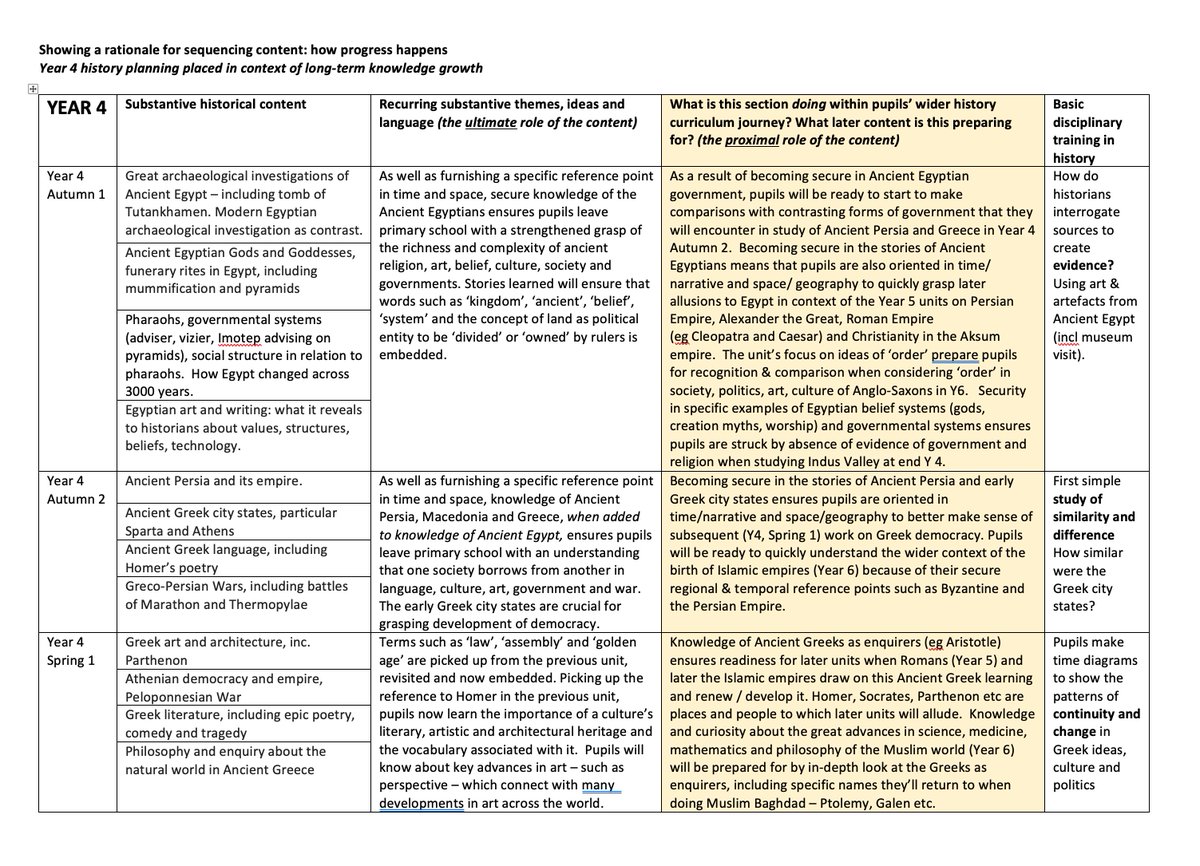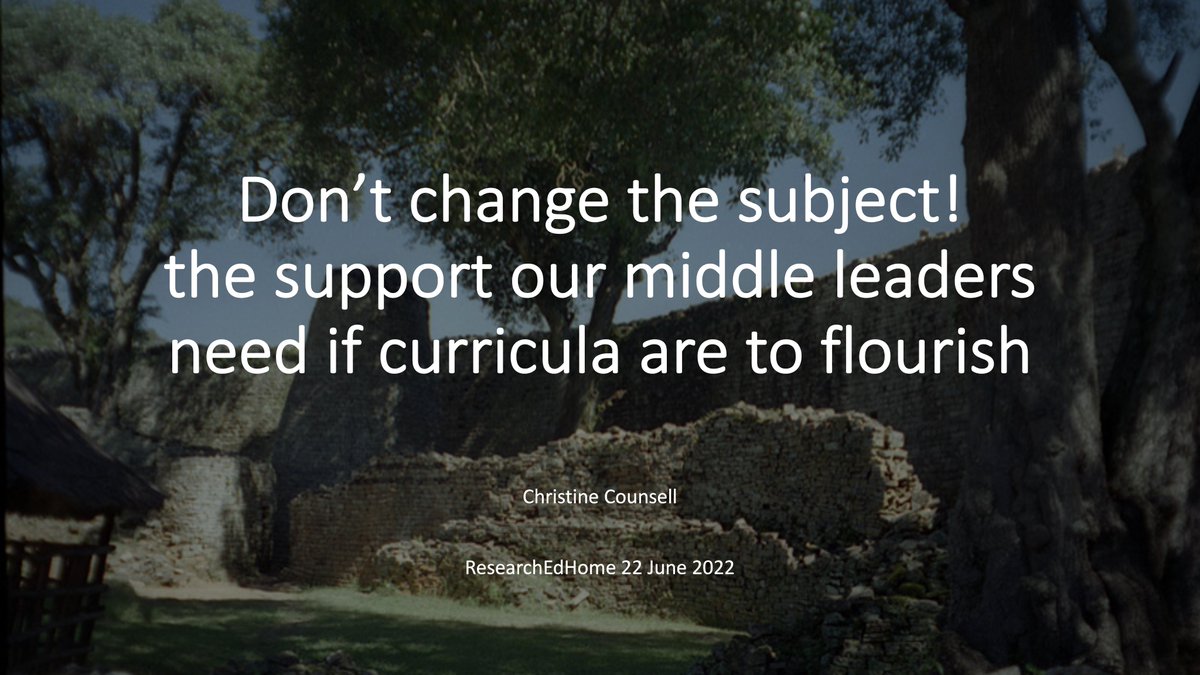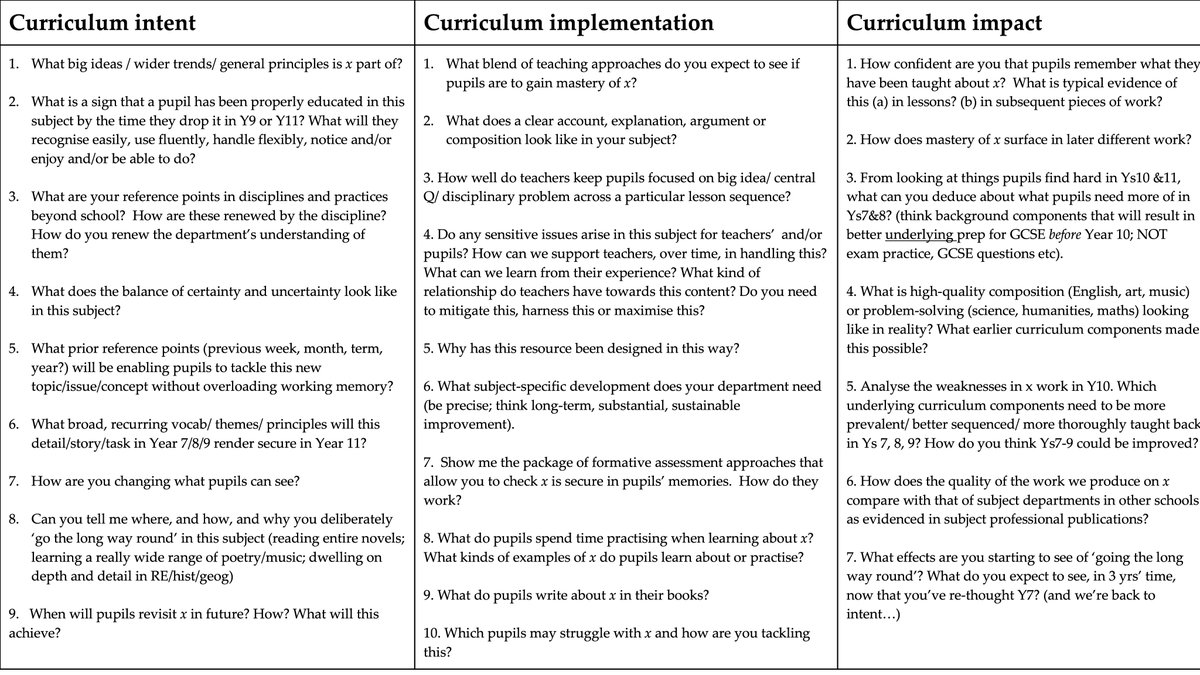
Curriculum leadership, subject communities, knowledge & culture in schools, teacher development, teacher agency. Truth seeker. History geek. Girly swot.
3 subscribers
How to get URL link on X (Twitter) App



 This is where we finished up: a guide for better (curriculum- centred) conversations betw senior & middle leaders. It is #notachecklist. Repeat: NOT a checklist! Not an audit tool! Use it as a short cut to a bureaucratic management exercise, & it self-combusts. @researchEdhome
This is where we finished up: a guide for better (curriculum- centred) conversations betw senior & middle leaders. It is #notachecklist. Repeat: NOT a checklist! Not an audit tool! Use it as a short cut to a bureaucratic management exercise, & it self-combusts. @researchEdhome 


